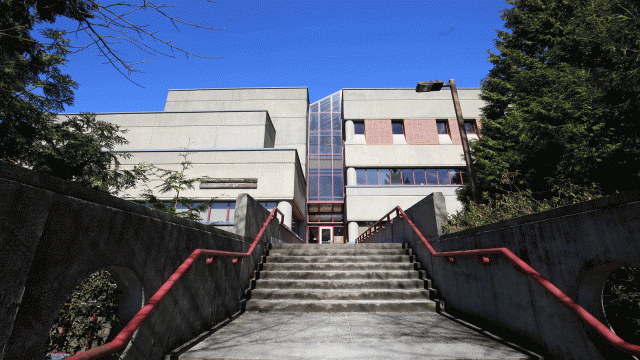This Arts program provides you with a grounding in the principles and techniques used by intelligent systems, both natural and artificial. It emphasizes the study of existing systems (i.e., linguistics), the design of new ones (i.e., machine intelligence), and the design of interfaces between different forms of intelligent agents. You can choose to specialize in Cognition and the Brain; Language; or Mind, Language, and Computation.
Why this program?
- Use tools from computer science, linguistics, philosophy, and psychology to study the basis of human thought, its development, and the ways in which it can be used effectively.
- Gain skills that you can use in academic, industrial, and governmental and non-governmental organizations to help make the world a better place.
- Establish deep and broad foundations on which to build an understanding of the mind.
Program information
Send details- Campus: Vancouver
- Faculty: Faculty of Arts
- Degree: Bachelor of Arts
- Length 4 yrs
- Co-op Yes
- Honours No
Cognitive Systems sits at the intersection of computer science, linguistics, philosophy, and psychology. It is the study of the systems that enable people to think, of the systems that can help and hinder our thinking, and of the artificial systems in which something like cognition is accomplished.
We teach, use, and re-conceptualize the most important and in-demand tools of the 21st century: the tools that every organization, business, and government is hoping to benefit from. We know how to understand data, and we know that data never speak for themselves. We know how to design effective cognitive systems, and we understand the ethical complexities of doing so.
As a student in the Cognitive Systems program, you’ll have hands-on research experiences that will equip you to work at the outer limits of scientific understanding, pushing to increase knowledge of those aspects of human nature that have proved most resistant to scientific explanation.
Send detailsLife at UBC's Vancouver campus
UBC's Cognitive Systems program covers dangerous and powerful ideas. You'll encounter the most ancient of philosophical enquiries and the most recently developed branches of computational engineering. You'll learn how this knowledge can be used as a force for change.
Find out moreYour future
As a Cognitive Systems graduate, you’ll be equipped with the skills and knowledge required to put information to work for the human good: you’ll have an understanding of information, an understanding of the human, and an understanding of the good. Strong, multidisciplinary foundations established through the Cognitive Systems program will provide you with a unique, multifaceted perspective and prepare you to think flexibly. Cognitive Systems graduates are in demand in any number of professions in which computer science, the human mind, and other complex systems interact.
Program graduates
- Founder and CEO, PatentPal
- Data Science Consultant, Cardinal Path
- Business Intelligence Consultant, Visier
- Software Engineer, Microsoft
Program requirements
English-language requirements
English is the language of instruction at UBC. All prospective students must demonstrate English-language competency prior to admission. There are numerous ways to meet the English Language Admission Standard.
General admission requirements
IB Diploma Programme
- Completed IB Diploma, including at least three Higher Level courses.
IB Certificate Courses
- IB Certificate courses (Standard and Higher Level) may be used in an admissions average if you are graduating from a recognized high school curriculum that can be used as your basis of admission.
- IB Math Applications and Interpretations SL, or IB Math Studies, do not satisfy the math requirement for admission to UBC’s science-based programs, the Faculty of Management, the UBC Sauder School of Business, or the Vancouver School of Economics.
Degree-specific requirements: Arts
- No specific courses required beyond those needed for general admission
Related courses
The following subject categories are particularly relevant for this degree. Consider taking courses in these areas in your junior year and senior year.
- Language Arts
- Mathematics and Computation
- Second Languages
- Social Studies
- Visual and Performing Arts
